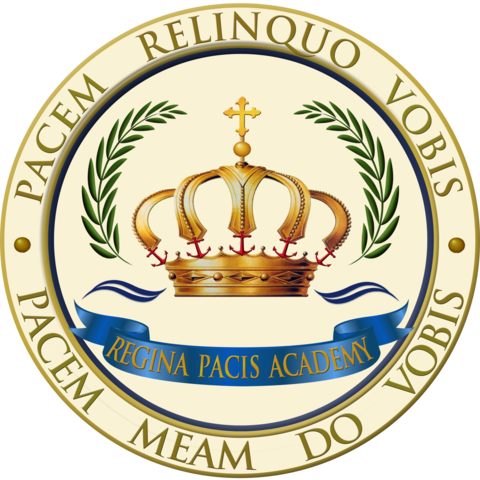Our Academic Philosophy
For while the particulars of what we study here are different from Aquinas’ day, we seek what he sought too in his daily prayer before study:
Give me a sharp sense of understanding,
a retentive memory,
and the ability to grasp things correctly and fundamentally.
Grant me the talent of being exact in my explanations,
and the ability to express myself with thoroughness and charm.
Point out the beginning, direct the progress, and help in completion.
Our classical model means that we live in a constant feedback loop. Without technology and through the conversations in our classrooms, at almost every moment of our learning day, we engage with each other face to face. This model requires a deep integrity and respect on the part of teachers and students. We come to know each other well as we plumb the depths of human knowledge and the human heart.
Aristotle thought all learning began in wonder. Desiring to learn is in our very nature as human beings. St. Thomas Aquinas, building on Aristotle’s foundation, added an important piece to our understanding of ourselves. As creatures made in God’s image, we are uniquely fitted to understand the wonders of God’s world: first, we learn particular things through our instincts and senses; our imagination is developed through introspection; rightly led, we gain intellectual knowledge where we can form abstract and general principles. Our learning is based in the good, the true, and the beautiful; it also leads us to a more profound and loving understanding for the good, the true, and the beautiful.
Here at Regina Pacis Academy, we aim to form the children in our care into saints and scholars (as our motto has it) by encouraging their natural desire to learn and allowing their roots to grow deeply so their minds and souls can be strong, reach high, and weather the inevitable storms of life.
Our classical curriculum ensures that our students learn in a structured ascending way, always working on particular skills while always thinking about permanent truths. From the first day of kindergarten, the children, guided by their teachers, experience wonder, devotion, and learning. By the time our students leave us at the end of 8th grade, our students think clearly, write and speak well, and have traversed important aspects of human learning in science, music, art, Latin, mathematics, history, and literature. They have also developed their innate capacity for wonder, an ability to regulate their thoughts and feelings, a strong sense of their own dignity and that of others, and a discerning gratitude to God. These are permanent gifts.
“A voice from the lungs is not enough to carry another along with the meaning of our words. The voice has to carry with it the warmth and living fire of the heart around which the lungs are wrapped.”
We have been inspired by the words of the Catholic thinker Stratford Caldecott:
If education is about the communication of values, or meaningful information, and of wisdom and of tradition, between persons and across generations, it is important to know that it can only take place in the heart; that is, in the center of the human person. A voice from the lungs is not enough to carry another along with the meaning of our words. The voice has to carry with it the warmth and living fire of the heart around which the lungs are wrapped.
Our hearts are still on fire to warm our students.


